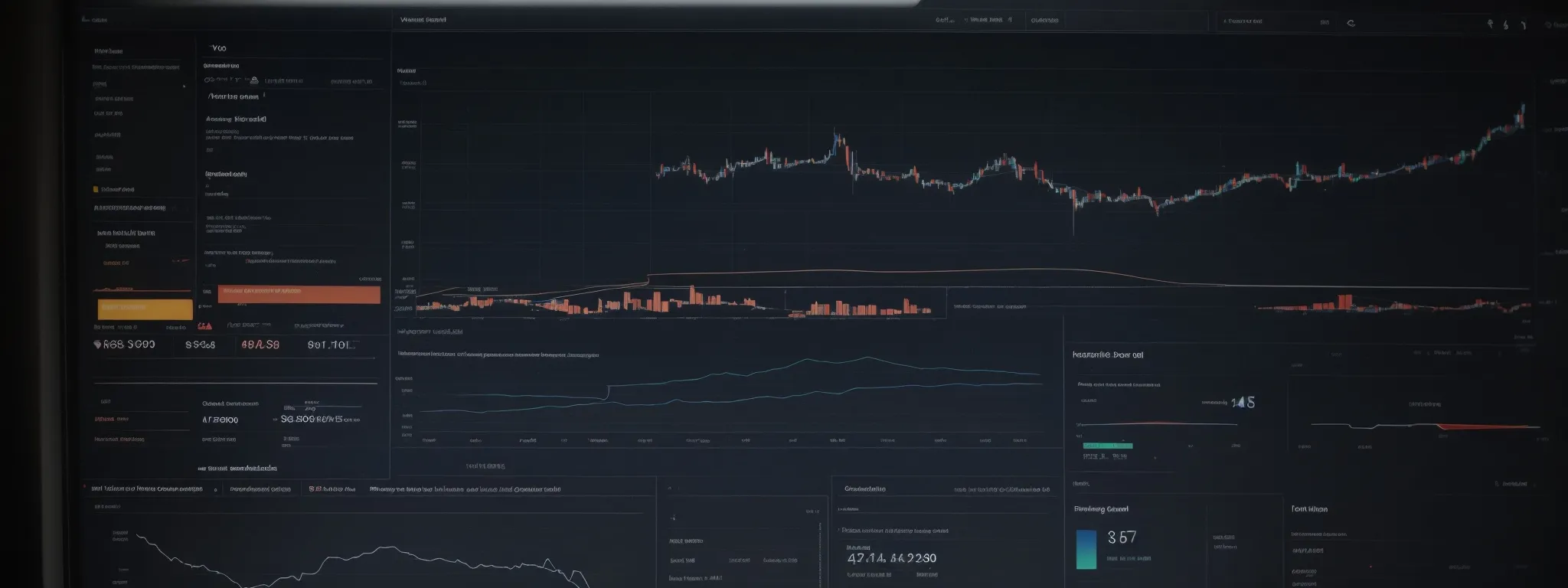SEO-Friendly WordPress URLs
Crafting SEO-Friendly WordPress URLs: A Step-by-Step Guide Navigating the intricacies of a WordPress site goes beyond mere aesthetics—it delves into the realm of SEO. Crafting SEO-friendly URLs […]
Crafting SEO-Friendly WordPress URLs: A Step-by-Step Guide
Navigating the intricacies of a WordPress site goes beyond mere aesthetics—it delves into the realm of SEO.
Crafting SEO-friendly URLs is not about laying bricks in cyberspace; it’s about paving roads for search engines and visitors alike, leading them straight to your content.
Recognized as an essential ranking factor, the clarity and structure of these URLs can significantly influence a website’s search visibility.
By refining each URL slug to reflect relevant keywords and page content, a company positions itself in the spotlight of search engine results.
Keep reading to discover how a well-designed permalink structure becomes an indispensable asset in your SEO toolkit.
Key Takeaways
- SEO-friendly URL Structures Are Vital for Both Improving Search Visibility and Enhancing User Experience
- Consistency in WWW Versus Non-WWW Formats Is Crucial to Prevent Authority Split and Ensure Search Engines Can Clearly Index the Site
- LinkGraph’s SEO Services Include Strategic Keyword Incorporation Into URLs for Better Alignment With Search Engine Algorithms and User Intent
- Ongoing URL Performance Monitoring and Adjustments Are Essential for Maintaining Optimal Search Result Positioning and User Engagement
- Utilization of Correct Permalink Settings and Taxonomies Within URL Structures Can Significantly Impact a Website’s SEO Framework
Understanding the Importance of SEO-Friendly URLs

In the dynamic realm of search engine optimization, the granular elements of a website hold immense potential in steering its search engine success.
Among these elements, the structure of a website’s URLs warrants significant attention, acting as both a guide for search engines and a beacon for user engagement.
With a distinct focus on WordPress sites, this article elucidates the intricate dance between SEO practices and URL configuration.
Here, readers will unearth a comprehensive method to conjure SEO-friendly URLs that not only bolster search visibility but also enhance the user’s navigational experience.
Recognizing that the clarity and composition of a URL can influence ranking factors and visitor satisfaction alike, LinkGraph’s SEO services intertwine technical expertise with intuitive design to optimize every facet of a WordPress site’s URL structure.
Grasp the Concept of SEO Impact on URLs
When one delves into the realm of search engine optimization, it becomes apparent that the impact of URL structure is profound. An SEO-friendly URL serves as a clear, concise map for search engines, guiding them through the content’s hierarchy and improving the indexing process.
LinkGraph’s SEO services recognize the URLs’ potency, implementing strategic enhancements that leverage user-centric keywords and coherent path structures to amplify visibility and ranking in search results. Understanding that a well-crafted URL is more than a mere address for a web page, it’s a crucial aspect of a site’s information architecture.
Recognize the Benefits of Optimized URLs for User Experience
Optimization of URLs transcends beyond mere aesthetics; it directly influences user experience. An optimized URL, clear and descriptive, empowers users, providing them with an intuitive understanding of the webpage content before even clicking through. It reassures visitors of a website’s credibility and relevance to their search query, bolstering trust and engagement.
LinkGraph’s SEO services Meticulously Craft URLs that prioritize simplicity and readability. This meticulous attention to detail ensures that visitors encounter no ambiguity, allowing for effortless navigation and a positive experience that can lead to improved site metrics and customer retention.
Setting the Stage for SEO-Friendly URL Structure

Before diving into the technicalities of tailoring URLs for enhanced search engine visibility, one must lay the groundwork within a WordPress environment.
This involves two pivotal decisions: the selection of an appropriate permalink setting and establishing a consistent approach to ‘WWW’ versus ‘non-WWW’ URLs.
These foundational choices form the backbone of URL structure, and with expert guidance from LinkGraph’s SEO services, organizations can set their WordPress sites on a path toward improved search rankings and robust user engagement.
Selecting the Optimal WordPress Permalink Settings
Determining the correct permalink settings on a WordPress site is a strategic decision, critical for maintaining SEO efficacy. The team at LinkGraph, through their Comprehensive Suite of SEO Services, supports clients in choosing a permalink structure that not only reflects the organizational hierarchy but also incorporates target keywords for optimal search engine alignment.
By focusing on user-friendly and SEO-aligned options within WordPress’s customization features, LinkGraph ensures that each permalink reinforces the overall SEO content strategy. These settings are attuned to create URLs that are both memorable and relevant, enhancing the ease of content discovery for both users and search engines alike.
Deciding Between WWW vs Non-WWW URLs for Consistency
As part of establishing a solid foundation for a website, LinkGraph’s SEO experts recognize the importance of consistency in the decision between WWW and non-WWW URLs. This choice does not directly influence a site’s performance in search engines; however, sticking with a consistent format is pivotal for avoiding the split of domain authority and ensuring clean, canonical signals to search engines.
The LinkGraph team systematically advises clients to harmonize their URL format across all web pages, which streamlines the search engines’ ability to comprehend and index the site’s content. By selecting a uniform approach to WWW versus non-WWW URLs, clients are positioned to bolster the clarity and strength of their domain’s root, thereby enhancing their online presence and search visibility.
Crafting the Perfect SEO-Friendly Permalink

In the quest to secure prime positions within search engine results, the creation of SEO-friendly permalinks within WordPress emerges as an essential but often overlooked stratagem.
Savvy webmasters and developers at LinkGraph engage in a meticulous process of refining URL slugs, ensuring they are not only readable and concise but also rich with targeted keywords.
This strategy is pivotal, as it harnesses the dual benefit of aligning with search engine algorithms while simultaneously improving user experience.
This initiates a profound synergy between site discoverability and visitor satisfaction—crucial components in the competitive landscape of digital marketing.
Best Practices for Creating Readable and Concise URLs
LinkGraph’s SEO experts champion the notion that the essence of a readable and concise URL is not so much in its length but its capacity to convey the content’s subject matter at a glance. The company’s strategic approach meticulously incorporates pertinent keywords into URL slugs, ensuring they directly relate to the page content while maintaining brevity and clarity to facilitate user comprehension and search engine favorability.
Within the framework of best practices, LinkGraph emphasizes the significance of keeping URLs devoid of unnecessary parameters and dynamic strings that might obfuscate their meaning. The company’s professionals adeptly tailor permalinks to exclude redundant characters, promoting a clean and straightforward structure that heightens the ease of content discovery and bolsters the precision of search engine indexing.
Integrating Keywords Into Your WordPress Permalinks
In the pursuit of SEO excellence, LinkGraph’s SEO services underscore the importance of weaving target keywords into WordPress permalinks with precision. The strategic placement of these keywords fortifies the relevance of a web page to search engine queries, enhancing its potential to climb the search results ladder.
Adopting a harmonized approach, LinkGraph ensures that every permalink adheres to SEO best practices, embedding keywords that mirror the audience’s search intent. This meticulous alignment guarantees that each URL resonates effectively with both search engines and users, solidifying the web page’s foothold in the digital ecosystem.
Eliminating Common URL Issues

Within the labyrinth of website optimization, addressing the hurdles of URL management is tantamount to sustaining a robust online presence.
The existence of duplicate content and broken URLs can significantly detract from a site’s authority, rendering efforts in content creation and SEO strategies futile.
In this crucial phase of crafting SEO-friendly WordPress URLs, LinkGraph’s SEO services provide an insightful guide to redirecting superfluous content and repairing link fractures.
The aim is to streamline the website’s URL paths, thereby ensuring a singular, authoritative source that search engines and users can trust.
Redirecting Duplicate Content for a Clear URL Path
LinkGraph’s adept SEO services confront duplicate content issues head-on by implementing strategic redirects to establish a singular, authoritative URL path. This process mitigates the risk of search engines misattributing page authority and ensures that visitors are directed to the most relevant content without confusion.
Through their comprehensive SearchAtlas SEO software, LinkGraph facilitates seamless redirection from duplicate URLs, bolstering a website’s SEO integrity. The reduction of content redundancy through careful URL management solidifies a domain’s standing and clarity, paving the way for increased search result prominence and user trust.
Fixing Broken URLs to Enhance Site Authority
LinkGraph’s SEO services navigate the intricacies of identifying and repairing broken URLs, recognizing their impact on a site’s legitimacy and authoritativeness in the eyes of search engines. By systematically rectifying these errors, the company’s SEO experts fortify the integrity of a site’s link profile, thereby uplifting its authority and trustworthiness throughout the digital sphere.
Restoring broken links promptly is a critical process adeptly handled by the professionals at LinkGraph, who understand that seamless access to all web pages underpins a robust user experience and search engine trust. This meticulous repair work not only recovers lost link equity but also ensures uninterrupted content accessibility, a pivotal factor in sustaining and enhancing a website’s stature in search rankings.
Utilizing Categories and Tags in URLs

Delving into WordPress’s ability to organize content, the implementation of categories and tags within URLs commands careful consideration for those intent on sculpting a formidable online presence.
Taxonomies, such as categories and tags, are not mere organizational tools; they are integral components that play a pivotal role in optimizing a site’s SEO framework.
This section of the guide will elucidate strategies for structuring URLs with appropriate taxonomies and achieving a balance that satisfies both SEO requisites and the desire for clean, navigable URLs.
A thorough understanding of these practices allows for the crafting of URL pathways that serve as clear indicators of a site’s content structure, enhancing search engine understanding and user experience alike.
Structuring Your URLs With the Right Taxonomies
LinkGraph’s seasoned SEO tacticians accentuate the importance of judiciously incorporating taxonomies such as categories and tags in the URL structure of a WordPress site. This strategic integration serves not only as a signal to search engines of the content’s classification but also aids users in understanding the context and hierarchy of the information presented.
The adept use of taxonomies within URLs, a service finely honed by LinkGraph’s SEO experts, ensures that both the website’s taxonomy and the link itself align cohesively with the overarching SEO content strategy. By orchestrating this alignment, the URLs potently contribute to a cleaner, more intuitive navigation path that underscores content relevance and thematic continuity.
Balancing SEO Needs With Clean Category and Tag URLs
In the meticulous craft of URL optimization, LinkGraph’s white-label SEO services finely calibrate the inclusion of category names and tags to create clean, SEO-empowered URLs. This careful balance aims to fulfill search engines’ predilections for clarity and interconnectedness, without overwhelming the URL with unnecessary complexity.
Expertly executed by LinkGraph’s team, this equilibrium ensures that each URL advances a site’s SEO agenda while maintaining a pristine simplicity that users appreciate. The result is a seamless, user-centric browsing experience that simultaneously caters to the sophisticated algorithms curating search results.
Monitoring and Refining Your URLs

In an ever-evolving digital landscape, the initial deployment of SEO-friendly URLs is merely the first step in an ongoing process of optimization.
Constant vigilance in monitoring performance metrics and agility in adapting to emerging SEO trends are pivotal in maintaining and improving the efficacy of a website’s URL structure.
This next stage in mastering WordPress URLs necessitates a multifaceted approach, where professionals at LinkGraph continuously track and scrutinize URL performance, applying data-driven insights to finetune and adjust URLs for optimal search engine results positioning and superior user engagement.
Tracking the Performance of Your SEO-friendly URLs
Continual Performance Assessment is critical for ensuring that SEO-friendly URLs are fulfilling their intended role. LinkGraph’s SEO services emphasize the significance of monitoring key metrics, such as click-through rates and search engine rankings, to evaluate the effectiveness of URL optimizations in driving organic traffic.
- Analyze click-through rates to gauge user engagement.
- Observe search engine ranking fluctuations to assess visibility.
- Review organic traffic data to determine URLs’ impact on site visits.
In response to the insights gathered, LinkGraph’s SEO experts implement adjustments to URL structures with the aim of refining their resonance with both search engines and users. This proactive approach allows for the continuous enhancement of website performance within the competitive digital arena.
Updating URLs Based on Performance Data and SEO Trends
LinkGraph’s meticulous approach to search engine optimization necessitates an agile response to performance data, ensuring clients’ URLs are continually primed for peak search engine results. By correlating key performance indicators with SEO trends, their SEO experts efficiently recalibrate URL structures, a critical move that aligns client sites with the fluid preferences of both search algorithms and user behavior.
In this relentless pursuit of optimization, LinkGraph harnesses the power of SearchAtlas SEO software to identify shifts in search patterns, a process that informs strategic updates to clients’ WordPress permalink configurations. This dedication to adaptability in URL management, informed by real-time analytics, secures a navigational advantage in the perpetually competitive digital landscape.
Conclusion
Crafting SEO-friendly WordPress URLs is a crucial step in optimizing a website for enhanced search engine visibility and user engagement.
The guide emphasizes the importance of a well-thought-out URL structure; starting with selecting the right permalink settings and maintaining consistency with WWW or non-WWW formats.
Incorporating readable, concise, and keyword-rich permalinks boosts a site’s SEO standing and user experience.
Additionally, it’s essential to address common issues such as duplicate content and broken URLs, thereby streamlining the site’s authority and trustworthiness.
Effectively using categories and tags in URLs helps signal content structure to both users and search engines, improving navigation and relevance.
Lastly, it’s not enough to initially set up URLs effectively; constant monitoring and updating based on performance data and SEO trends are necessary to ensure ongoing optimization and competitiveness in the digital space.
Through this comprehensive approach, LinkGraph’s SEO services strive to perfect WordPress URL structures for success in the online arena.














































































